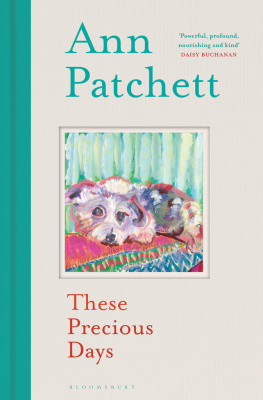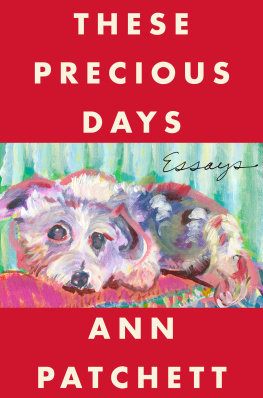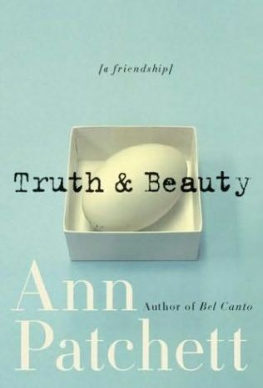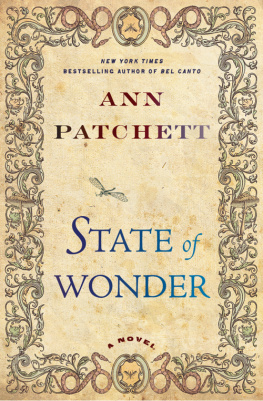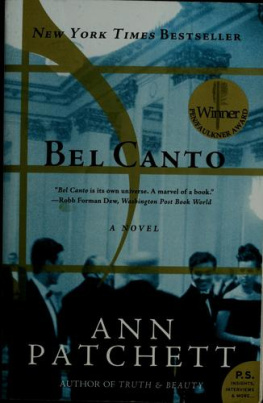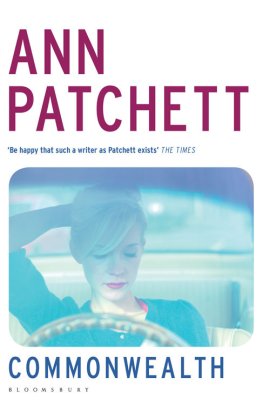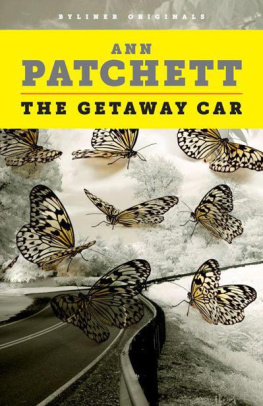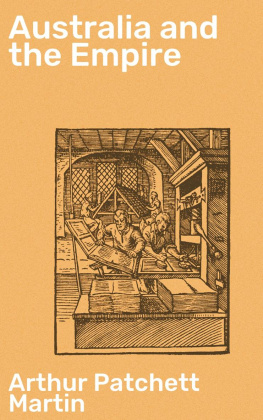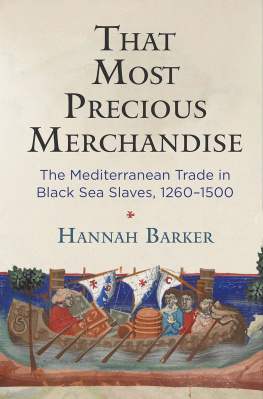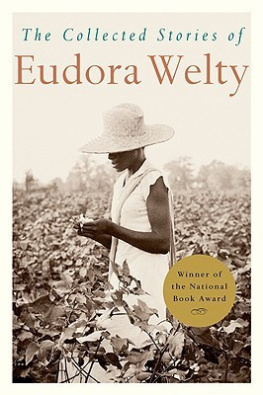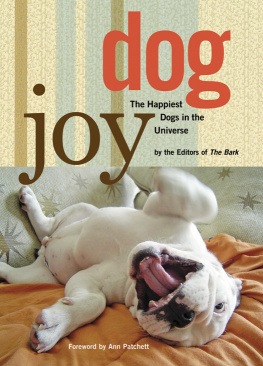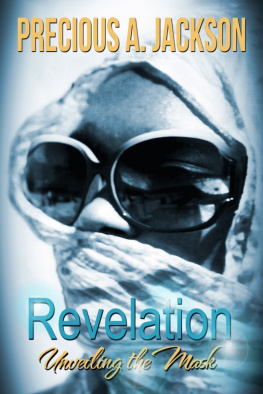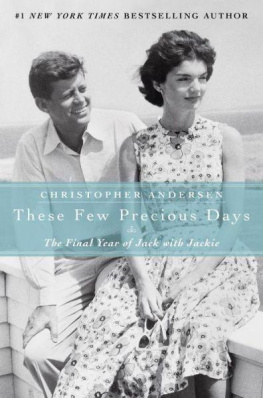Ann Patchett - These Precious Days
Here you can read online Ann Patchett - These Precious Days full text of the book (entire story) in english for free. Download pdf and epub, get meaning, cover and reviews about this ebook. year: 2021, publisher: Bloomsbury, genre: Detective and thriller. Description of the work, (preface) as well as reviews are available. Best literature library LitArk.com created for fans of good reading and offers a wide selection of genres:
Romance novel
Science fiction
Adventure
Detective
Science
History
Home and family
Prose
Art
Politics
Computer
Non-fiction
Religion
Business
Children
Humor
Choose a favorite category and find really read worthwhile books. Enjoy immersion in the world of imagination, feel the emotions of the characters or learn something new for yourself, make an fascinating discovery.
- Book:These Precious Days
- Author:
- Publisher:Bloomsbury
- Genre:
- Year:2021
- Rating:4 / 5
- Favourites:Add to favourites
- Your mark:
- 80
- 1
- 2
- 3
- 4
- 5
These Precious Days: summary, description and annotation
We offer to read an annotation, description, summary or preface (depends on what the author of the book "These Precious Days" wrote himself). If you haven't found the necessary information about the book — write in the comments, we will try to find it.
These Precious Days — read online for free the complete book (whole text) full work
Below is the text of the book, divided by pages. System saving the place of the last page read, allows you to conveniently read the book "These Precious Days" online for free, without having to search again every time where you left off. Put a bookmark, and you can go to the page where you finished reading at any time.
Font size:
Interval:
Bookmark:

BY THE SAME AUTHOR
NOVELS
The Patron Saint of Liars
Taft
The Magicians Assistant
Bel Canto
Run
State of Wonder
Commonwealth
The Dutch House
NONFICTION
Truth and Beauty
What Now?
This Is the Story of a Happy Marriage
CHILDRENS
Lambslide
Escape Goat

BLOOMSBURY PUBLISHING
Bloomsbury Publishing Plc
50 Bedford Square, London, WC1B 3DP, UK
29 Earlsfort Terrace, Dublin 2, Ireland
BLOOMSBURY, BLOOMSBURY PUBLISHING and the Diana logo are trademarks of Bloomsbury Publishing Plc
This electronic edition published in 2021 by Bloomsbury Publishing Plc
First published in 2021 in the United States by HarperCollins First published in Great Britain 2021
Copyright Ann Patchett, 2021
Ann Patchett has asserted her right under the Copyright, Designs and Patents Act, 1988, to be identified as Author of this work
For legal purposes the Acknowledgements on p. 310 constitute an extension of this copyright page
All rights reserved. No part of this publication may be reproduced or transmitted in any form or by any means, electronic or mechanical, including photocopying, recording, or any information storage or retrieval system, without prior permission in writing from the publishers
Bloomsbury Publishing Plc does not have any control over, or responsibility for, any third-party websites referred to or in this book. All internet addresses given in this book were correct at the time of going to press. The author and publisher regret any inconvenience caused if addresses have changed or sites have ceased to exist, but can accept no responsibility for any such changes
A catalogue record for this book is available from the British Library
ISBN: HB: 978-1-5266-4096-3; TPB: 978-1-5266-4095-6;
Waterstones Signed Special Edition: 978-1-5266-5254-6;
eBook: 978-1-5266-4097-0; ePDF: 978-1-5266-4099-4
To find out more about our authors and books visit
www.bloomsbury.com and sign up for our newsletters
to Maile Meloy
Contents
The first time I remember seriously thinking about my own death, I was twenty-six years old and working on my first novel, The Patron Saint of Liars. No matter where I went, I carried the entire cast of characters with methe heroines and heroes and supporting players, as well as the towns they lived in, their houses and cars, all the streets and all the trees and the color of the light. Every day a little bit more of their story was committed to paper, but everything that was still to come existed only in my head. Remembering things is how I work. I didnt have outlines or notes, and because of that, I was hounded by the thought of stepping off a curb at the wrong moment, or drowning in the ocean (this second scenario seemed more likely, as I was living in Provincetown, Massachusetts, where I swam in the freezing water and was prone to cramps).
Were I to die, Id be taking the entire world of my novel with meno significant loss to literature, sure, but the thought of losing all the souls inside me was unbearable. Those people were my responsibility. Id made them up, and I wanted them to have their chance. The specter of my death stayed with me until the novel was finished, and when it was finished, death lit out for a holiday.
No luck lasts. A few chapters into my second novel, there death was, picking up the conversation exactly where wed left off. I was living in Montana by then, a state full of potential deaths Id never thought to worry about: falling off a hiking trail and down the side of a mountain, being hit by a runaway logging truck, being eaten by a mountain lion or a bear. Every trip outside was a meditation on mortality. But when I wrote the last page of that novel, death packed up without a word. Through editing, copyediting, page proofs, book tour, it never crossed my mind that I might break through the solid ice that had formed over the river and be swept away.
When death came back for the third time it was, as always, without fanfare. I was deep into my third novel then, and had been at the job long enough to recognize the pattern.
My professional life has continued to be marked by this on-again, off-again relationship, and, weird as it is, the problem isnt unique to me. Before she boards a plane, one friend sends me instructions as to where in her house shes hidden a thumb drive with the files for her uncompleted novel; another friend asks me if I could just finish her book for her if she dies. I left a Post-it on my computer, she tells me, saying youll write the end.
According to my small, unscientific study, writers who were already deep into a project when the pandemic hit were okay going forward, while those of us who had yet to start, or had barely started, froze in our tracks. Death had gotten the jump on me this time; I was worrying about it before Id even come up with a fully formed idea for a novel. What was the point of starting if I wasnt going to be around to finish? This didnt necessarily mean I believed I was going to die of the coronavirus, any more than I believed I was going to drown in the Atlantic or be eaten by a bear, but all those scenarios were possible. The year 2020 didnt seem like a great time to start a family, or a business, or a novel.
Of course I was still writing essays. Im always writing essayseight hundred words on owning a bookstore for a newspaper in London, my ten favorite books of the year for a magazine in Australia, an introduction for a newly reissued classic, maybe a little piece about dogs. Essays never filled my days, but they reminded me that I was still a writer when I wasnt writing a novel.
That was how I found my loophole: death has no interest in essays.
Why hadnt I noticed this before? When I wrote my first essay collection, This Is the Story of a Happy Marriage, death didnt even bother to rattle the windows. The book felt so ridiculously personal that I worried only about whose feelings I might hurt, and gave no consideration as to whether I might step on a snake. I realized that for all the essays Id written in my life, Id never once heard the ethereal shush of a scythe being sharpened nearby. Had death wandered off because no immense cast of imagined characters could be obliterated? Or was it because the things I wrote about in essays were true, verifiable? Were I to abruptly exit in the middle of writing an essay, there would be someone around who, with a certain amount of research, could bring it to conclusion. They might not write it the way I would have, but the same facts would be available to them. Or maybe the facts themselves were the problem. Imagination can be killed but facts are infinitely harder to snuff out. I know it might not seem this way. Time works tirelessly to erase factsthis country works tirelesslybut facts have a way of popping up, their buoyant truth shining all the more brightly with time. Maybe that was why death wasnt interested in essays; essays dont die. I decided to go all in.
I began to write longer essays, and I wrote them for myself: Why the sudden desire to get rid of things? What did it mean at this point in my life not to have children? Other essays came out of conversations I had with friends, most notably the piece about my three fathers. After my friend Kates father died, she told me she was going to write about him. Id been thinking of writing about my own three fathers for fifteen years but had never found the courage to follow through. I asked her if I could tag along. Writing is such solitary work, but in this case her companionship made me brave.
Font size:
Interval:
Bookmark:
Similar books «These Precious Days»
Look at similar books to These Precious Days. We have selected literature similar in name and meaning in the hope of providing readers with more options to find new, interesting, not yet read works.
Discussion, reviews of the book These Precious Days and just readers' own opinions. Leave your comments, write what you think about the work, its meaning or the main characters. Specify what exactly you liked and what you didn't like, and why you think so.

